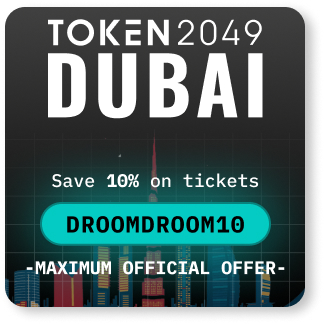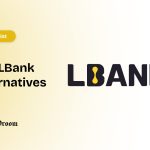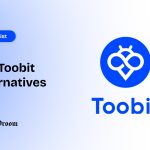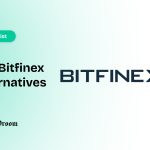The automotive industry is on the cusp of major innovations, from electric and autonomous vehicles to ride-sharing and mobility services. At the same time, Blockchain technology has emerged as a disruptive force with the power to reshape industries. The combination of blockchain and automotive has the highest potential to impact the future of transportation.
- Benefits of Blockchain for the Automotive Industry
- Enhanced Security and Transparency
- Improved Supply Chain Management
- Automotive Maintenance and Recall Handling
- Usage-Based Insurance
- Autonomous Payments and Smart Contracts
- Vehicle Identity and Ownership
- Blockchain Use Cases and Examples
- Supply Chain Tracking
- Usage-based Insurance
- Autonomous Payments
- Vehicle Identity and History
- Ride-hailing and Car Rentals
- Challenges and Limitations for Blockchain in Automotive
- Future Outlook for Blockchain in Automotive
- Scalability and Adoption Growth
- Business Opportunities
- Platformization Potential
- Integration with IoT, Big Data, and AI
- Conclusion
Blockchain is a distributed ledger technology that provides transparent, secure and safeguarded record-keeping. It emerged first as the underlying technology of cryptocurrencies like Bitcoin, but its uses now extend far beyond finance. The core value proposition of blockchain includes decentralization, transparency, immutability, and enhanced security.
The automotive industry has sophisticated supply chains, financial transactions, dealership networks, and maintenance records across the vehicle lifecycle. There are also emerging trends like usage-based insurance and autonomous payments that can benefit from blockchain. This article will examine how blockchain can transform major pain points for automakers, dealerships, insurers, and service providers in the automotive ecosystem.
Benefits of Blockchain for the Automotive Industry
Enhanced Security and Transparency
One of the most important benefits of blockchain for automotive is enhanced cybersecurity. The industry has vulnerabilities in keyless entry systems, onboard diagnostics ports, Bluetooth connections, and other digital components. Hacking incidents that compromise vehicle safety have raised alarms.
The blockchain’s decentralized nature eliminates single points of failure. Its cryptographic foundation also enables secure identity management and asset tracking. Parts can be digitally tagged using unique identifiers on the blockchain to trace their entire lifecycle across suppliers and manufacturers. Tamper-proof ledgers also bring greater transparency and audibility to automotive supply chains.
Improved Supply Chain Management
Automakers rely on just-in-time manufacturing with large supplier networks spread globally. Complex supply chains make identifying bottlenecks, quality issues, and part provenance difficult. Blockchain enables real-time tracking of parts as they move through multiple tiers of suppliers. It also brings transparency, financing arrangements, and inventory levels. Automakers can use blockchain to identify counterfeit parts, improve recall management, and verify sources. Smart contracts can be used for order fulfillment, invoice generation, and payments to streamline supply chain administration.
Automotive Maintenance and Recall Handling
Blockchain can transform maintenance logs and vehicle service histories into tamper-proof digital records. This provides transparency during sales of used vehicles and aids recall handling. When maintenance records are linked to the digital identities of vehicles, nearby service centers can have real-time access to maintenance requirements. Smart contracts can enable automated payment processing when contract conditions are met. Ride-sharing fleet operators and rental car companies can benefit from comprehensive maintenance insights through blockchain.

Usage-Based Insurance
Insurers are exploring blockchain to price policies based on real vehicle usage accurately. Metrics like mileage, driving behavior, and vehicle health can be reliably tracked on a tamper-proof ledger. This enables flexible, customized insurance plans as opposed to fixed annual premiums. Autonomous payments can be automatically triggered based on insurance terms coded into smart contracts. Accident liability can also leverage usage data for fairer judgment. Blockchain standardization offers interoperability between insurers, their partners, and customers.
Autonomous Payments and Smart Contracts
Blockchain enables automated payments triggered when contract conditions are fulfilled. Smart contracts are self-executing based on if-then scenarios. For example, ride-sharing drivers may receive payments once their ride is complete. Electric vehicles can autonomously pay for charging stations. Tolls, parking fees, and related transactions can also leverage smart contracts for seamless automation. This also lowers infrastructural needs. Related areas like enabling access rights, vehicle feature unlocks, and loyalty rewards can also benefit.
Vehicle Identity and Ownership
Vehicle identity and ownership management are crucial but fragmented in the automotive industry. Blockchain can create unique digital IDs for vehicle ownership histories securely tracked on distributed ledgers. This provides transparency during sales of new and used vehicles. Multiple parties like insurers and lenders can gain trusted insights into asset ownership. It also assists law enforcement and regulators in combating theft. Overall, blockchain strengthens integrity across vehicle identity and ownership processes.
Blockchain Use Cases and Examples
Supply Chain Tracking
Automakers like BMW and Ford are actively exploring blockchain for supply chain transparency. BMW has piloted blockchain to track auto parts across international suppliers starting from their origin. It provides an immutable audit trail across tier 1, tier 2, and tier 3 suppliers. Ford similarly tracks vehicle components from supply to assembly lines to build trust. Recalls can also be efficiently traced back to faulty batches and root causes.
Usage-based Insurance
Insurers like Progressive and Allstate now offer usage-based insurance for driving behavior metrics. Customers can voluntarily install telematics devices or utilize mobile apps to share odometer readings, accident history, and even driving style factors. This enables highly personalized, flexible insurance offerings. Blockchain strengthens integrity and auditability in usage metrics. Decentralized oracles can securely feed external data like weather or traffic conditions into smart contracts.
Autonomous Payments
Daimler already enables automated payments at electric charging stations using blockchain. Payment actions are triggered by smart contracts once charging is complete. This improves efficiency for drivers and infrastructure providers. Volkswagen, too, is exploring blockchain payments that deduct tokens as cars drive through toll booths or parking lots. Token balances can be topped up in advance, creating seamless transaction experiences.
Vehicle Identity and History
Blockchain is envisioned to underpin comprehensive digital IDs for vehicles. This encompasses identifying attributes like VINs but extends into ownership changes, insurance claims, accident reports, etc. Toyota and Ford are among the companies developing blockchain platforms for vehicle identity and history transparency. This benefits dealerships, repair shops, and even law enforcement. Comprehensive insights can also help augment reliability and safety.
Ride-hailing and Car Rentals
Ride-hailing fleets and rental cars see high utilization and movement between users. Blockchain can optimize utilization and asset tracking. It can enable dynamic risk assessment and pricing when integrated with usage-based insurance. Health metrics like mileage and maintenance needs can be centrally tracked even as vehicles switch between riders or renters. Payments also become frictionless with blockchain-based smart contracts.
Challenges and Limitations for Blockchain in Automotive
Scalability Limitations
Public blockchains used for cryptocurrencies like Bitcoin are limited in scalability at present. Ethereum processes 15 transactions per second, which lags far behind Visa’s 24,000. Automotive use cases must leverage private, permissioned blockchains with higher transaction throughput. Consortium models can also help coordinate blockchain adoption across industry stakeholders.
Integration with Legacy Systems
Integrating with legacy IT systems is essential for blockchain to impact existing automotive processes. Inventory management, billing, customer relationship management, and other back-end systems need appropriate interfaces. A phased approach can allow automakers and suppliers to gain experience before expanding blockchain across processes. APIs and middleware layers may be needed for interoperability.
Regulatory Uncertainty
Smart contracts and blockchain-based records establish a new paradigm for automotive processes. However, legislation around data privacy, financial transactions, liability assignment, and more must be clarified. Governments also need to define compliance requirements for blockchain-based systems. Close collaboration between technology and regulatory stakeholders is crucial.
Lack of Standards
While some blockchain protocols like Ethereum are gaining adoption, there are yet to be definitive standards, especially for the automotive context. Interoperability between blockchain platforms, apps, and data schemas will require strong industry standards. Common standards are also essential for ensuring distributed ledgers remain synchronized correctly. Developing standards will facilitate integration with legacy IT as well.
Future Outlook for Blockchain in Automotive
Scalability and Adoption Growth
and @holoride team up in their desire to change the automotive industry?
Adopting can gain momentum as blockchain platforms scale through second-generation evolutions and optimized consensus protocols. Automakers seem particularly bullish on permissioned consortium blockchains for supply chain transparency. Such private networks avoid public blockchains’ latency and cost issues by limiting participation. Automobile blockchain use cases will progress from proof of concepts to production with faster transactions.
Business Opportunities
Blockchain creates new value propositions and business models. Automakers can monetize usage data through smart contracts. Auto insurance can evolve into highly personalized offerings. Blockchain also enables new peer-to-peer services for ride-sharing, car rentals, and vehicle charging. New ecosystems can be built on open blockchain platforms where traditional sector boundaries dissolve.
Platformization Potential
Widely adopted open blockchain protocols can enable new ecosystems like Android on mobile or the Internet. This creates opportunities for innovation and collaboration. Network effects due to standardization provide benefits across interconnected members. Emerging developments like decentralized finance and NFTs indicate rapid platform-based business growth is possible with blockchain.
Integration with IoT, Big Data, and AI
Blockchain will interface heavily with IoT ecosystems as vehicles become rich data devices through telematics and in-car sensors. Big data analytics, artificial intelligence, and machine learning can provide actionable insights atop the auditable data foundation established by blockchain. This can hugely expand the possibilities for usage-based services and personalized customer experiences.
Conclusion
Blockchain technology shows strong potential to address existing pain points and open up new opportunities in the automotive industry. Secure digital identity, usage tracking, payment automation, supply chain transparency, and data monetization are promising use cases. However, integration challenges and regulatory uncertainties need resolution for blockchain to be impactful.
As the technology matures and standards evolve, blockchain is poised to drive major transformation across automotive industry including transportation and mobility services in the coming decade. The future looks super bright for blockchain integration that can bolster automotive industry innovation.


















